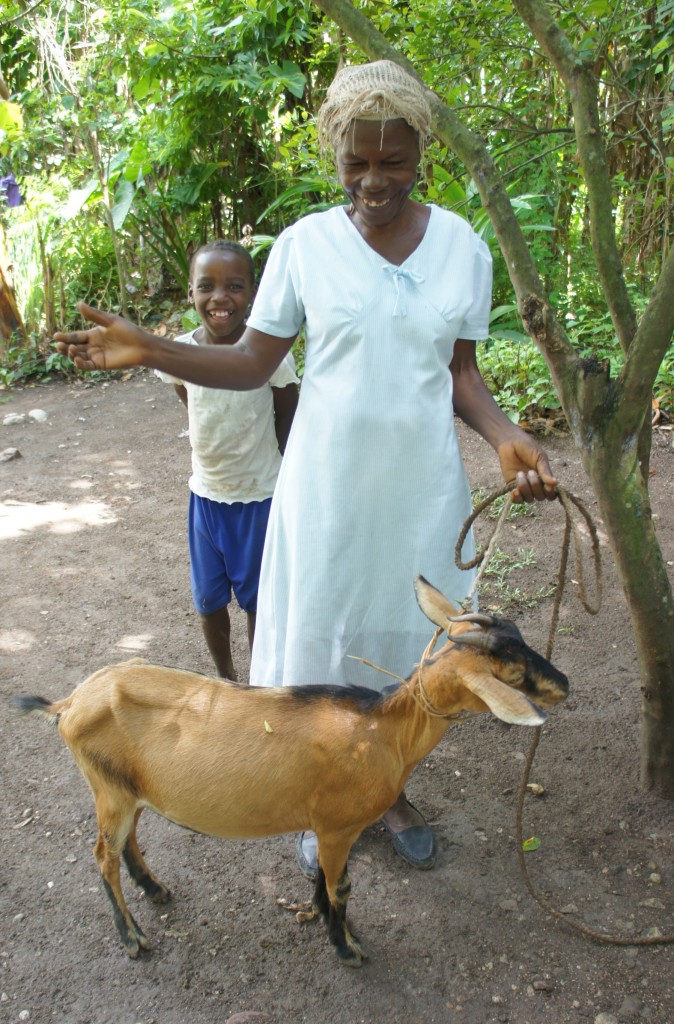Last fall, Americas Area Vice President Oscar Castañeda shared his thoughts on Heifer Haiti's Rural Entrepreneurs for Agricultural Cooperation in Haiti (REACH) project. REACH is a five-year project that will assist 20,250 rural households in Haiti through not only the distribution of livestock but also through improved market linkages and the construction and management of goat and swine breeding centers. Learn more about REACH here: www.heifer.org/reachout.

The project officially started in the second half of 2012, and the past several months staff members in Haiti have begun constructing the project.
“REACH is just like we’re building Haiti," said Hervil Cherubin, Heifer Haiti director. "So you have to spend a lot of time to build a strong foundation, a strong base. Once you have that base, you can go ahead. That’s what we’ve been doing the first semester, building that base."
REACH will be implemented in six of Haiti's ten departments. So far, Heifer Haiti has selected 36 municipalities in four departments for REACH. About half of the communities where Heifer will work through the project have been identified as well.
To date, 100 project participants have received training. Sixty goats and 240 rabbits have also been distributed. Additionally, a fish hatchery was built for 15,000 fingerlings on Lake Peligre.
Goat and pig breeding centers are an important part of REACH. Heifer will build 97 goat and 50 swine breeding centers that will provide quality livestock for Haitians. Project participants will own the centers. Twenty-five breeding center owners have been selected already, and 19 breeding centers are under construction.
From December 4-6, Heifer Haiti hosted the Community Animal Health Worker (CAHW) Orientation Workshop in Les Cayes. The goal of the workshop was to develop a community-based animal health care system in Haiti through a “training of trainers” methodology, where workshop participants learned basic health care applicable for all animal species so that they can use that knowledge to train animal health workers in the field. During the workshop, participants and facilitators designed a three-week basic course to use for the participants’ training sessions in the field. In the next month, workshop participants will train 60 CAHWs to assist in the REACH project.
Partnerships for the project are also in the works with Haiti's Ministry of Agriculture and several non-governmental organizations.
“Now we’re ready to start building on (our) base," Cherubin said. "Structurally, (REACH) has been praised. Many people think, for the first time, there is a model that takes on the structural aspects of animal production in Haiti.”